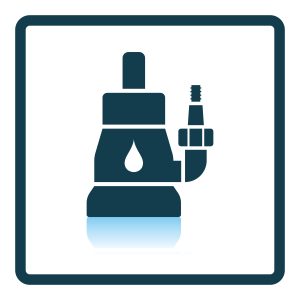A Guide to Grinder Pump Maintenance

Grinder Pump Maintenance: When and Why is It Needed?
Like with most appliances, grinder pumps require regular maintenance to keep them functioning properly. Regular grinder pump maintenance can extend the life of your unit as well as improve its efficiency and reduce the risk of sewage backing up into your home. And considering how expensive a new pump can be, anything that reduces your need for repairs or replacement saves can save you big money in the long run.
How Long Do Grinder Pumps Last?
Every appliance has an average and expected life expectancy. While this can depend greatly on usage, brand, and how well you maintain it, most grinder pumps last about ten years, with early failures happening as soon as four to five years. A well maintained grinder can survive as long as twenty to twenty-five years. Keeping up with your grinder pump maintenance can be a major factor in how long your pump lasts.
Does Grinder Pump Maintenance Improve Efficiency?
Make no mistake, a struggling and poorly maintained grinder pump is not going to operate efficiently. This will increase your risk of two unfortunate possibilities: first, your pump is likely to fail sooner, and second you'll be at an increased risk of sewage backing up into your home. Anytime a grinder stops working or is not working well, sewage can build up and come back into your home. That nasty water and muck can bubble into your shower and overflow your toilet bowl, leaving you needing a professional home cleaning and a drain and grinder service.
Maintenance of your grinder will help maintain efficiency. This will extend the life of your unit and reduce your risk of failures and sewage backing up into your home.
Do Grinders Have to Be Replaced When They Fail?
There are some parts, systems, and appliances that cannot be repaired. For example, air conditioning compressors cannot actually be repaired, only replaced. In other instances, repairs do not make financial sense compared to replacement, like with cheaper items such as faucets, where replacement is often the faster and less or equally expensive option.
For grinders, there are instances where repairs can be made. There are a number of repairable and replaceable parts on your pump that a skilled plumber can take care of. When performing maintenance services on your grinder pump, many of these parts, like the float, get cleaned and tested to help ensure their longevity. This aids in avoiding having to not just potentially replace the entire pump but also having to make small repairs along the way.
How Often is Grinder Pump Maintenance Needed?
The frequency of grinder pump maintenance comes with conflicting recommendations. Some professionals state it isn't necessary to perform maintenance except every couple of years while others, like us, recommend yearly maintenance on your grinder. In our experience, performing your grinder pump maintenance every year significantly increases the likelihood of your grinder pump lasting well beyond the average ten years.
What All Gets Done During a Maintenance?
During your annual grinder pump maintenance, a licensed plumber should perform all of the following:
- Thoroughly clean basin
- Verify high-limit float and light are operational
- Test voltage at capacitor
- Test incoming-power voltage
- Verify panel is water-tight and properly sealed
- Check continuity of fuses
- Inspect associated breaker and panel
- Test and record time it takes for grinder to pump down
Take Maintenance Into Your Own Hands
Grinder pump maintenance should be performed by a licensed and trained professional. However, there are a number of things homeowners can do to help avoid issues with their pump. Most critically, never put things down your drain that don't belong inside of your sewer. Be sure to never put any of the following down your drain:
- Cooking fat, lard, oil or grease
- De-greasing Solvents
- Cigarette butts
- Dental Floss
- Sanitary napkins, tampons or diapers
- Q-Tips
- Sanitary wipes such as baby wipes or disposable floor wipes
- Hair clippings
- Cat litter
- Strong chemical, toxic, caustic, or poisonous substance
- Explosive or flammable materials
- Glass, metal, wood, eggshells, seafood shells, coffee beans, aquarium rocks or gravel
- Plastic Objects
- Rubber gloves or other disposable gloves
- Fireplace ashes
Keeping these items out of your sewer will help avoid needing untimely grinder pump repairs.
Need Help With Your Grinder Pump?
Do you have a grinder pump, or are you unsure if you have a grinder pump? When your sewer system isn't working correctly, our team can assess what kind of plumbing setup you have and get it back functioning fast.